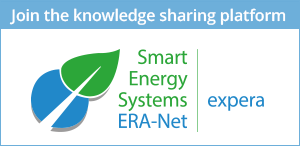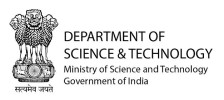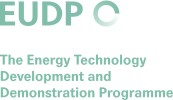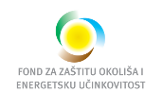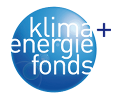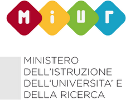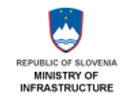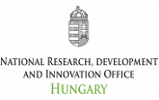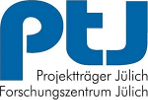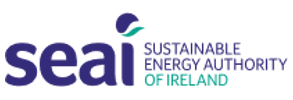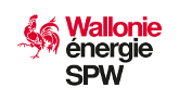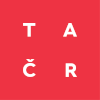Focus Initiative “Digital Transformation for the Energy Transition”
(Start 2020, first call cofounded by the EC under grant agreement 883973 – EnerDigit)
According to the Report "Digitalisation & Energy” by the International Energy Agency (IEA), digital technologies are set to make energy systems around the world more connected, intelligent, efficient, reliable and sustainable. Stunning advances in data, analytics and connectivity are enabling a range of new digital applications such as smart appliances or shared mobility.
Digitalisation is already improving the safety, productivity, accessibility and sustainability of energy systems.
All energy demand sectors are feeling the effects (cars, trucks, planes, ships, trains and their supporting infrastructure are all becoming smarter and more connected, digitalisation could cut energy use in buildings by about 10% by using real-time data to improve operational efficiency, etc.), the digital transformation is expected to have wide effects on the future design of energy systems.
Digitally interconnected systems could fundamentally transform electricity markets. Digitalisation can help integrate variable renewables by enabling grids to better match energy demand to times when the sun is shining, and the wind is blowing. This would provide further flexibility to the grid while saving between USD 100 billion and USD 280 billion in avoided investment in new electricity infrastructure between 2016 and 2040. Digitalisation can facilitate the development of distributed energy resources, such as household solar PV panels and storage, by creating better incentives and making it easier for producers to store and sell surplus electricity to the grid. New tools such as blockchain could help to facilitate peer-to-peer electricity trade within local energy communities.
While digitalisation can bring many positive benefits, it can also make energy systems more vulnerable. For instance, data on energy use in households collected by smart meters can be used to tell when someone is home, using the shower, or making tea. At the same time, aggregated and anonymised individual energy use data can improve understanding of energy systems, such as load profiles, and help lower costs for individual consumers. Digitalisation is also affecting jobs and skills in a variety of energy sectors, changing work patterns and tasks.
EnerDigit seeks to address the following actions highlighted by the IEA in its report recommending ten no-regrets policy actions that governments can take to prepare. Among them:
- Experiment, including "learning by doing” pilot projects
- Focus on the broader, overall system benefits
- Incorporate digital resilience by design into research, development and product manufacturing
- Provide a level playing field to allow a variety of companies to compete and serve consumers better. Learn from others, including both positive case studies as well as more cautionary tales.
The following Innovation areas have been identified:
- technical operation: ICT support for automation and tech-nical control of grid, generation, consumption and storage devices
- business operation: innovative ICT means for managing the businesses of system operators and utilities
- market operation: ICT based platforms and transaction mechanisms to trade energy, power and flexibilities
- communication: apps and web-based tools to inform
EnerDigit Objectives and Ambitions
EnerDigit promotes applied research and development, piloting and demonstration in the field of digitalisation of energy systems and networks. It provides a transnational innovation ecosystems, sharing development and test facilities to develop scalable, customizable and replicable solutions, applicable from local through interregional and up to global level, making effective use of the opportunities provided by digitalisation to power the energy transition.
EnerDigit is expanding the ERA-Net SES Focus Initiatives by
- Amplifying the RegSys approach to support the development of need driven implementation environments on regional and local levels, link innovators to local innovation forces, need owners, potential adopters, procurers and buyers, as well as to follow up funders and financi-ers with close to market thinking.
- Initiating co-creation processes, aligning the R&I knowledge with new innovation approaches from the digitalisation sector and start-ups as well as stimulating the creation of digital energy solutions building on available ICT platforms and tools
- Enhancing interoperability of solutions by enabling collective interoperability testing with a variety of developers, producers and providers of solutions, supporting the practical implementation of common standards, interoperability profiles and reference architectures
EnerDigit Concept and Approach
EnerDigit is maintaining a Transnational Validation Ecosystem of existing and upcoming living labs, allowing start-ups and innovative companies to test their solutions in different environments. It provides an easily accessible data-base of multi-purpose open access testing, piloting and demo-infrastructures as well as of open living labs for customer value and business model validation for the energy system developers. It finances multilateral cooperation projects for transnational validation of solutions within this ecosystem, utilizing the existing living labs.
EnerDigit is maintaining an Associated Partner Network with digital platform providers. They provide a portfolio of offers to RDD projects with free and/or limited access to platform solutions, e.g. cloud available services or results from previous projects and describe available platform solutions for project applicants and innovation stakeholders.
The goal is to stimulate collaboration for:
- enhanced access for RDI projects to existing Data-, Software-, Service and Business platforms
- raised opportunities for applications developed in RDI projects to become marketable solutions
- critical mass of solutions on platforms, becoming development ecosystems for smart services
EnerDigit will pilot a European Collaboration Platform for Interoperability Testing. This will comprise the following activities:
- Establishment and provision of an open, independent development and test environment for developers, manufacturers and suppliers of components and solutions for smart energy systems. Enabling different developers, manufacturers and providers to test their components and solutions in direct cooperation under realistic conditions, within the framework of a moderated joint use of the development and test environment (e.g. within collaborative test events).
- Development of innovative, comprehensive service offerings. The portfolio should be comprehensive, go beyond the testing of existing components and solutions, and include elements such as process support, seminars, etc.
- Knowledge and innovation management, ensuring the evaluation, documentation and dissemination of results (with regard to exploitation rights) as well as the effective involvement of additional actors, where relevant (e.g.: system de-signers, building and infrastructure operators, end users, etc.)
- Organisation of Interoperability Test Events - pilot "Connectathons”. These Interoperability Test Events shall follow the IHE model and will provide a unique opportunity for vendors to test the interoperability of their products in a structured environment with peer vendors. Participants test against multiple vendors using real world scenarios following Integra-tion Profile specifications.
Expectations to Proposals for Projects to unleash the potential of the digital transformation for the energy system
Joint calls for RDD transnational projects are planned for 2020 and for 2022. Projects are expected to contribute to designing, implementing and testing of technical and business services for energy systems and solutions, unleashing the potential of digitalisation for the energy transition. Projects are encouraged to include partners from infrastructure operators, local industries or communities and end-users in value chains from the local and regional, up to the European and global levels. Project teams should include innovative SMEs, start-ups and investors with a "digital” and close to market mindset, to develop scalable, customizable and replicable solutions. Research activities should include coordination and linking of living labs, facilitating the development and field-testing of prototypes, bringing innovative solutions from TRL4 to TRL7.
The calls will support RDD proposals on digitalization within fields such as big data, artificial intelligence, internet of things, data security and privacy, data ownership and digital resilience in the 4 Digitalisation of Energy Systems domains: Technical operation, Business operation, Market operation, Communication. Solutions developed and tested shall be modular and versatile so to allow for seamless integration and a high degree of interoperability.
